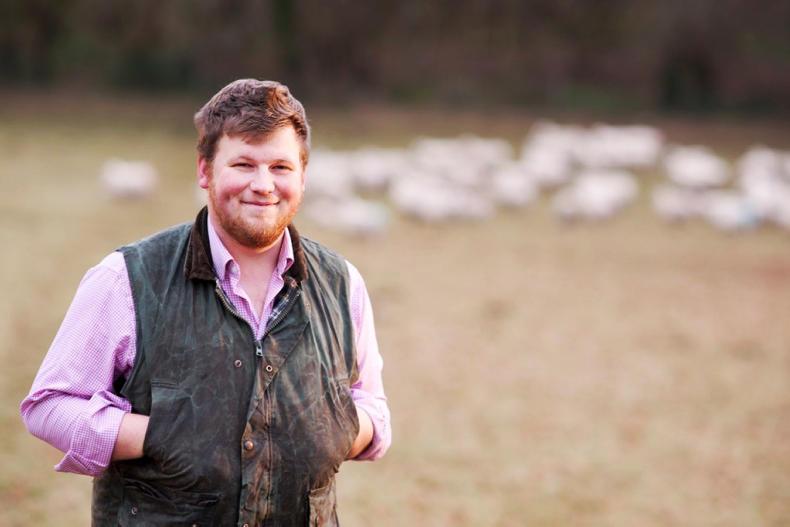Right now I’m at the Royal University in Cirencester doing a diploma in agriculture, once a week.
I have a degree in business also but I always wanted to be a farmer. My family didn’t want me to as they thought it wasn’t a good idea. I bought two pigs in my final year of university and I got to 40 sows and 260 fatteners within a few years in another share-farming experience with a young farmer.
I just started a share-farming arrangement in Suffolk. The landowners own a percentage of the livestock and we split profits and share running costs. It’s about sharing the risk.
The farm consists of 190 acres and is mainly a mixed sheep and beef farm. The pasture needs regenerating through block grazing and over seeding.
The sheep enterprise consists of 300 New Zealand Romney ewes and we will start lambing straight away. These are a low-maintenance breed and will lamb outdoors, with all progeny finished on grass and turnips.
I am just starting a beef herd and have 12 Red Poll sucklers and the beef from their progeny will be sold through the Pasture for Life scheme.
Pasture for Life is a set of standards. You guarantee that the animal will not have any grain- or bean-based products. They can have grass, turnips or herbs. The idea is to try and get a premium for the produce, which on a small farm is important. My generation of farmer needs to take sustainability more seriously and we need to provide the environmentally concerned consumer with a sustainable meat product.
The Red Poll are from Suffolk so it’s about building on the local brand. There is also horse livery and holiday lets on the farm and I also manage events such as festivals and keep some pigs still. Currently the hog roast is the most profitable part of the business.
I love feeding people. Farming is about creating food and my hobby is cooking for my friends and as a farmer I produce food for hundreds if not thousands of people and that gives me a great thrill.
Access to land was the biggest challenge I faced. It’s very difficult to build a reputation if you’re not from farming stock. I was at a disadvantage early on as what most farmers take as common knowledge I didn’t know. My questions when I started seemed very stupid to other farmers.
At times farmers get a bad reputation for being miserable but there is so much knowledge that they have, the people I have met are the best.






 This is a subscriber-only article
This is a subscriber-only article





SHARING OPTIONS: